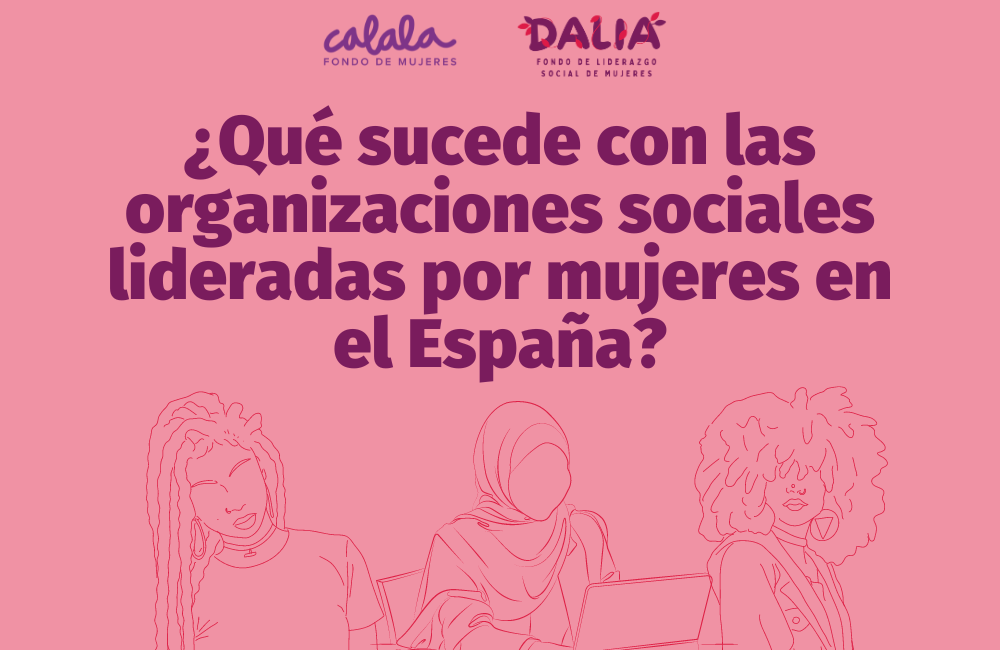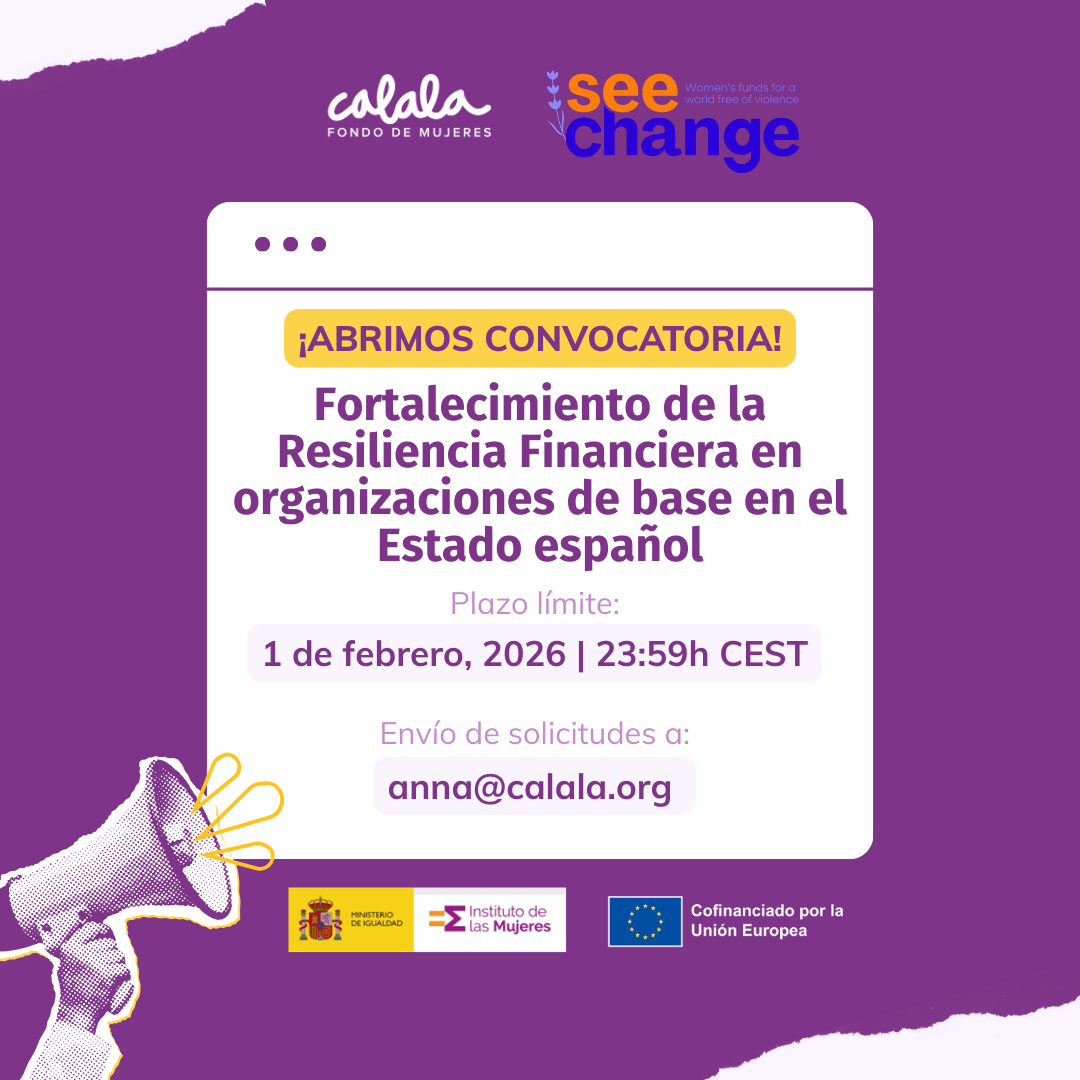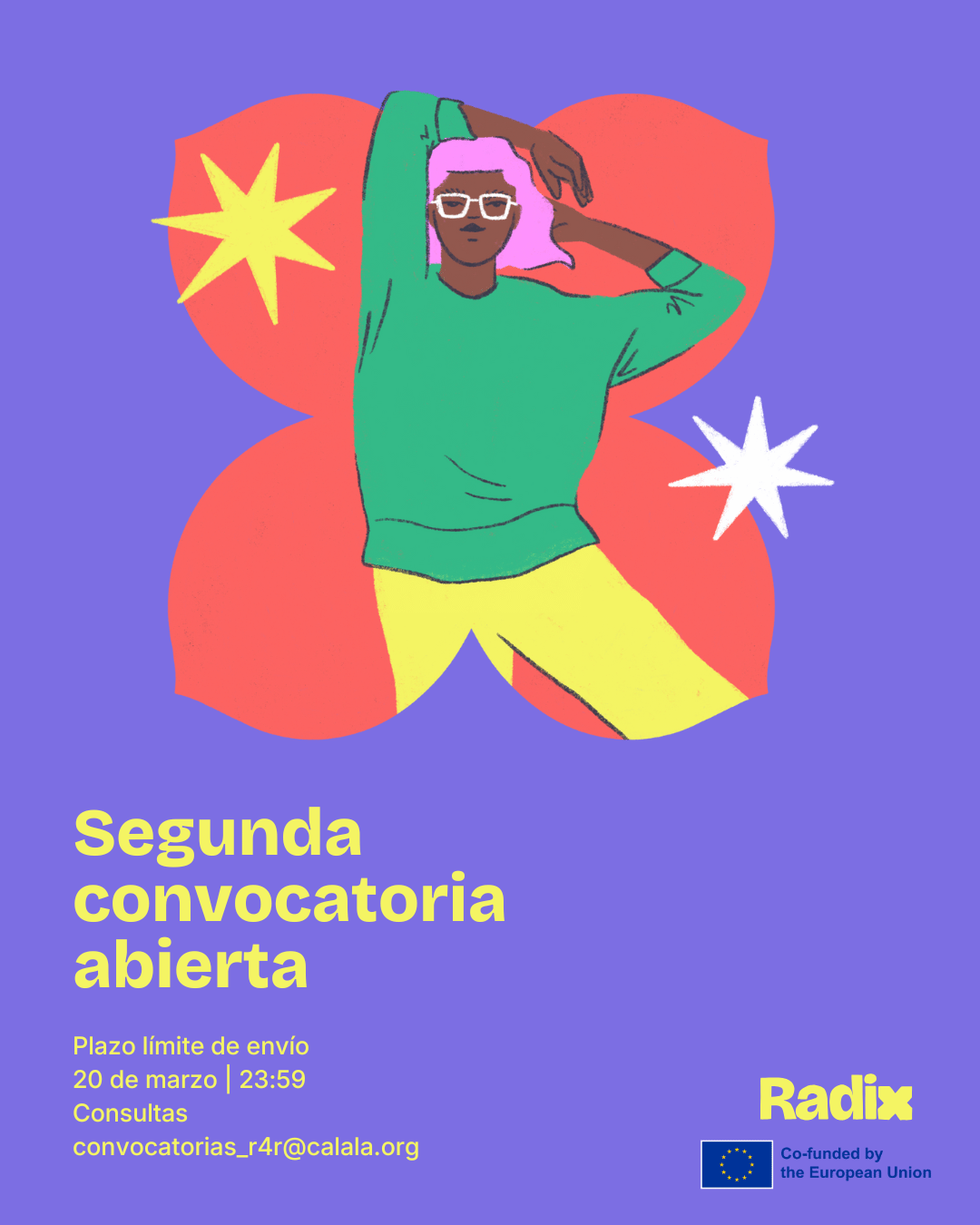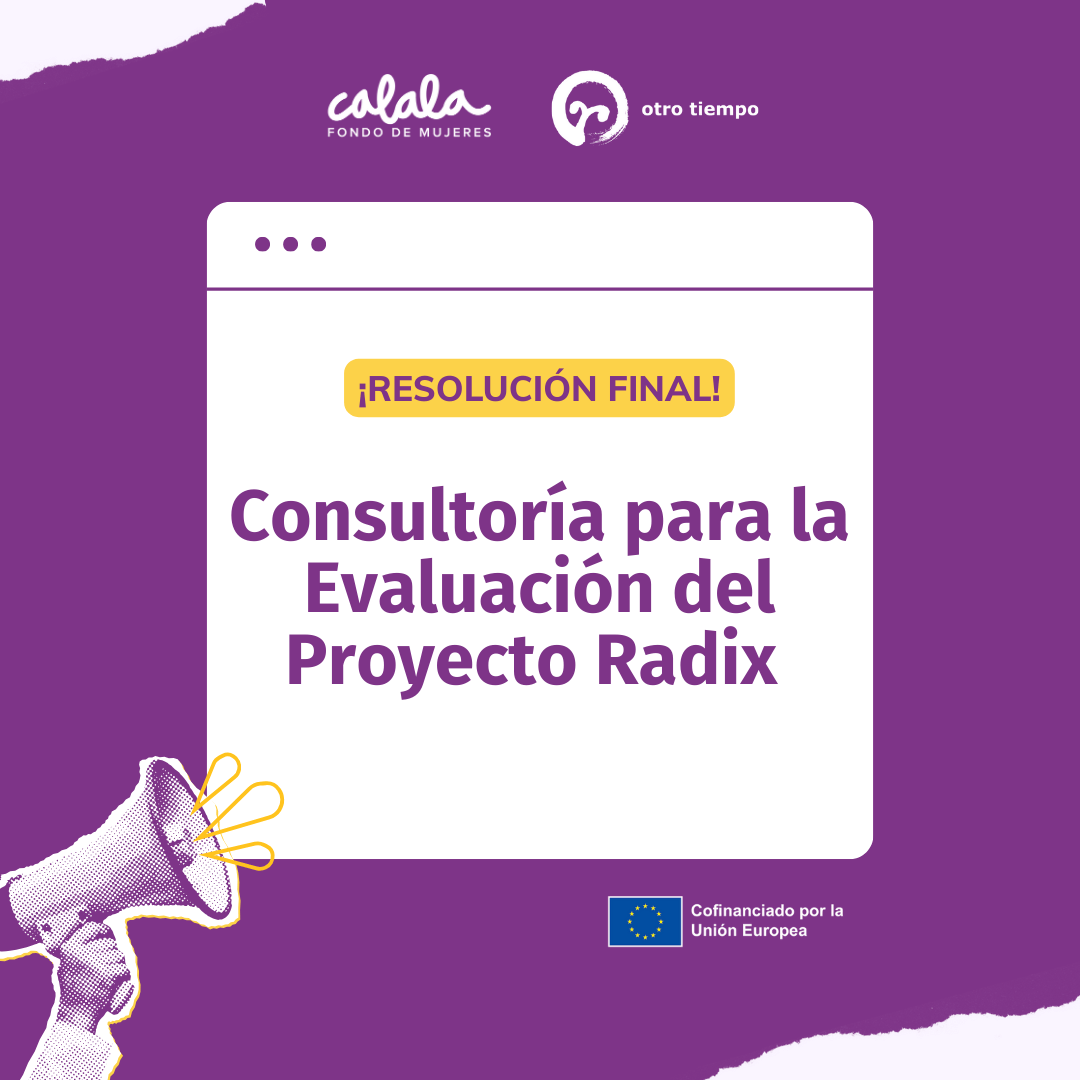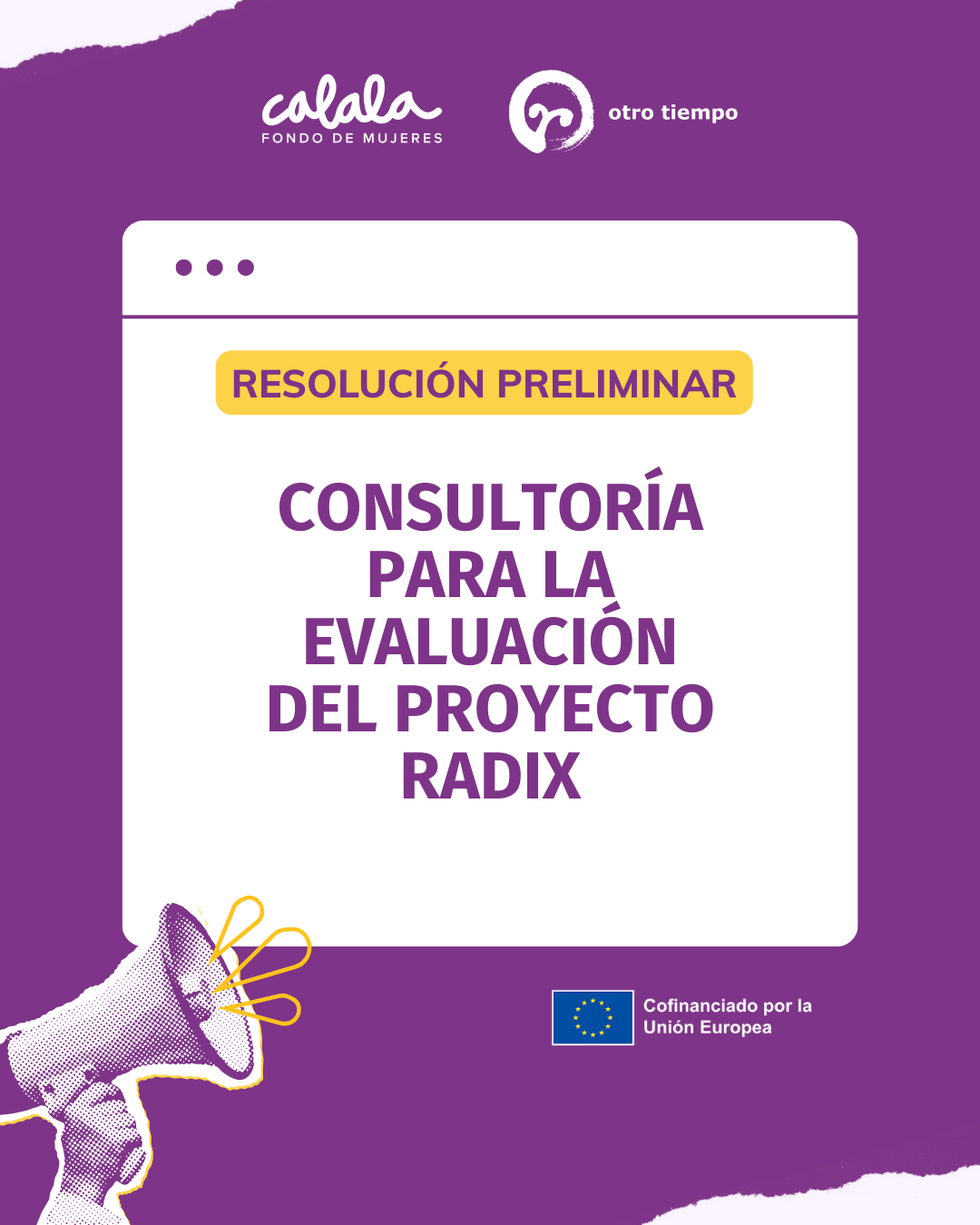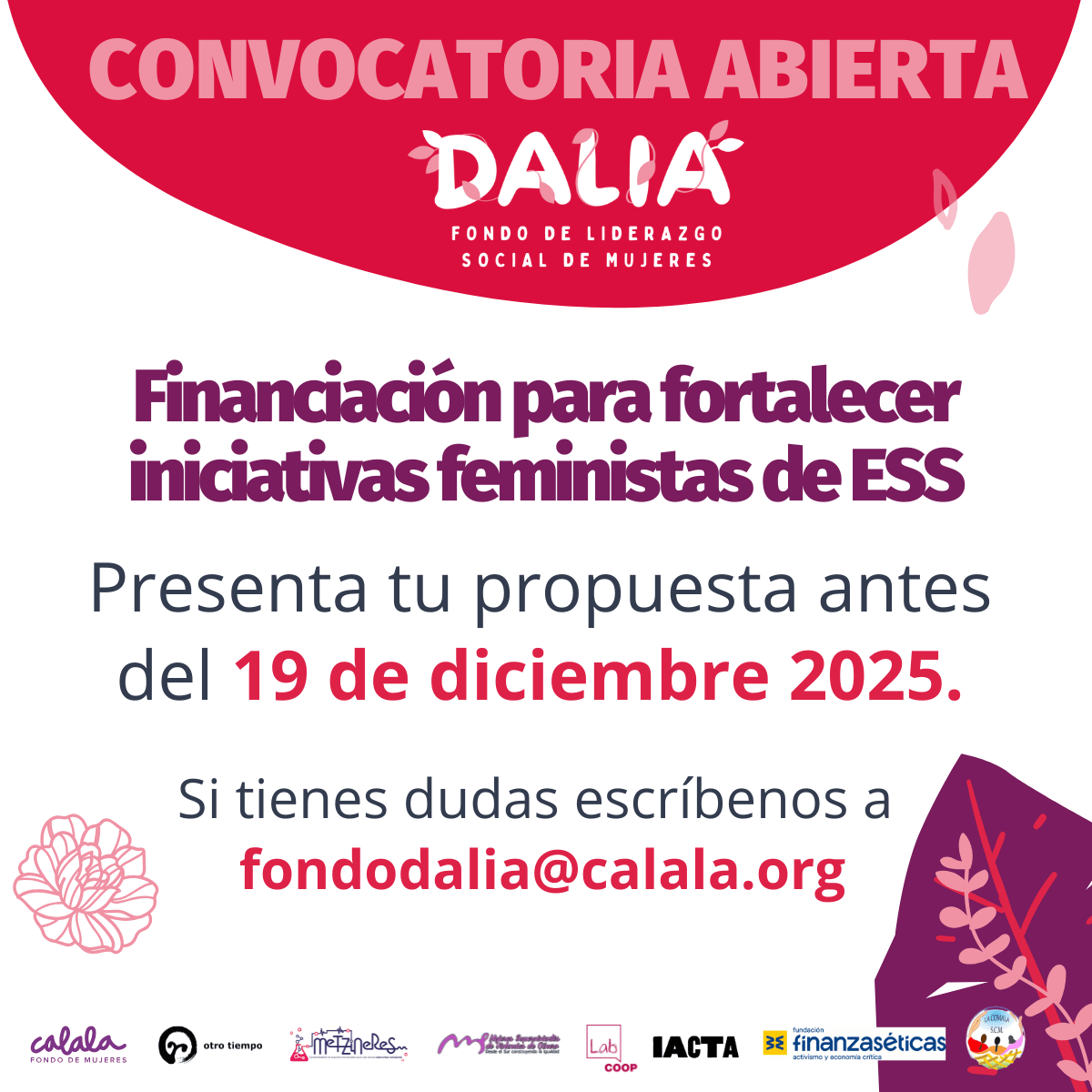Research on the economic situation of women's social organisations in Spain
There is a tendency for work to become precarious because they work with few staff, some in very precarious conditions, even on a voluntary basis or under the umbrella of activism.
Most of them consider that their main concern at present is to maintain the structures of their organisations financially (67.5%). This is followed by the difficulty in accessing public funding (44.6%).
Calala Women’s Fund and the Dalia Fund have published research on the economic situation of social organisations, led by women, in Spain, to analyse the financial and working conditions they live in today. The current world situation and the succession of multiple economic, health, social and even war crises have not only led citizens to live in uncertainty, but these organisations also face many doubts about their future. Their social role is relevant because apart from being a source of self-employment, employment and dynamisation of the economy, they offer social care to people in vulnerable situations, or goods and services in highly precarious sectors such as rural or household and care.
For this research, a survey was launched to more than 500 organisations in all the autonomous communities of the country and 83 of them participated. These are some of the most important conclusions:
At the economic level, most of them, 77.1%, heavily dependent on external funding (subsidies, funds and grants), which may result in greater dependence and fragility of their projects. There is a tendency to labour precarisation This is due to staff shortages, the precarious conditions of some workers and the recurrence of people working on a voluntary basis or under the umbrella of militancy.
In the group of organisations receiving external funding, 70,3% obtain public funds. The next most common form of funding is through membership fees or individual donors, and the third most common source of funding (31.3%) is through women's funds, such as the Calala Fondo de Mujeres. 18.8% of these organisations receive funding from the Ministry of Equality and to a lesser extent, under 10%, from the European Union.
On the positive side, there has been a trend towards improvement in the financial situation of organisations as they gain seniority. Also, compared to the situation during the COVID-19 crisis, a certain stability is evident in most of the organisations; many of them have returned to normality after the crisis, and have even increased their income and capacities.
Concerning the concerns of organisations, (67.5%) believe that the main one is the maintenance of their internal structure and functioning. to be able to deal with the application and justification processes for funding, which are perceived to be very complex. There is a clear need, not only for funds dedicated exclusively to supporting the structures of the organisations, but also for a specific body that can provide information on the existence of the different external funding options, as well as act as a translator of the legal texts that must be interpreted in order to apply for this type of funding.
With regard to opportunities, the organisations highlight the importance of creating alliances among them to strengthen both the development of their work and their economies. Also, the possibility of generating training spaces in financing and expanding its portfolio of services in order to be able to count on its own resources.
